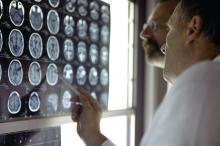A psychiatrist used the Mini-International Neuropsychiatric Interview and the Positive and Negative Syndrome Scale to determine diagnostic assessments and symptom ratings. Several CV risk factors were measured, including blood pressure, triglycerides, HDL, and LDL. Using the charts, the researchers verified the absence of diabetes by fasting glucose. They also checked participants’ BMI and height.
“This study suggests that overweight/obesity, which is frequent in schizophrenia, may contribute to neurostructural changes already early in the course of illness,” the investigators wrote. “Specifically, the brains of participants with FEP appeared on average 2.64 years older than their chronological age.”
Among participants with both FEP and overweight/obesity, the investigators found the average discrepancy between brain and chronological age to be as high as 3.83 years.
They cited several limitations. Because the study was not prospective, the researchers could not establish causality of the association between metabolic alterations and brain structure. In addition, the existence of insulin resistance could not be ruled out – although none of the participants reported a history of type 2 diabetes.
Still, “,” the investigators wrote.
They reported no conflicts of interest.
SOURCE: Kolenic M et al. J Psychiatric Res. 2018 Apr. 99:151-8.


